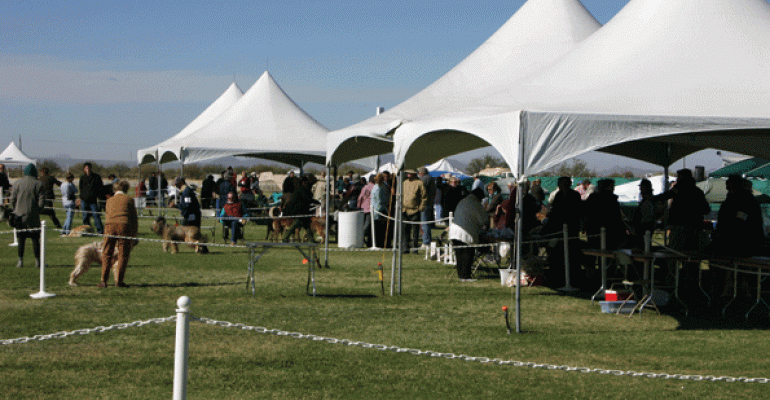
Special events can help small-business owners promote team building and encourage new clients to consider doing business with their company. Whether you're a professional planner or putting together a one-off event, these tips will help you to ensure that you and your team don't end up wasting time and other resources—and ensure that the event is a success.
Getting Your Team Ready
1. Call the first meeting. Office meetings are notoriously dull, but they don't have to be. Help drum up excitement for the event by asking your team to join you for cocktails or dinner to discuss the initial idea and get some input from your employees. If morning suits everyone better, offer coffee and breakfast with the discussion.
2. Bring your notes. When you kick off the planning process by showing you are organized and have thought the idea through, your team members are more likely to follow suit. A notepad with the basic points is helpful:
- Concept of the event
- Tentative cost/budget of event
- Time and date
- Target audience
- What you'll require of your team
3. Offer incentives to your team. While you expect your team members to sign up for tasks leading up to the event date, you can make it more worth their while if you offer bonuses, a team event, or something else that will let them know how much you value their assistance.
4. Divide and conquer. Possibly the most important part of planning the event is dividing your team into smaller committees to manage different aspects of the event. This is helpful for a few reasons:
- Your employees will develop better leadership skills.
- Your employees will share the responsibility of creating a successful event.
- Smaller groups are more efficient for budgeting and to stay organized.
5. Decide on the committees. How, exactly, should you divide your team into committees? That depends on the size of the company and the amount of work that needs to be done. Some key groups:
- Public relations—This group will handle spreading the news that your firm is hosting an event, through whatever means possible—radio, television, social media, and marketing pieces such as postcards and posters.
- Presentations—This group (or groups, since you may need more than one) will be responsible for finding guest speakers, performers, or whatever "live action" is planned.
- Hospitality/food and beverage—This group will ensure that food and beverages are properly handled for the event.
6. Delegate talent wisely. Keep in mind that your employees might need guidance when it comes to dividing into efficient groups. You can let them decide for themselves, of course, but if you post a sign-up sheet and everyone wants to research the wine and cheese bar, you may have a problem. It's a better idea to think about what each of your team members excels at and to assign them accordingly. Not only will they form new bonds with coworkers, you'll have everything covered.
Within the Committees
7. Encourage them to use a timeline. Most people work well under pressure, and encouraging each committee to develop a timeline of dates leading up to the event is a good way for your committee to monitor progress and avoid procrastination.
8. Encourage autonomy. Each committee needs a leader and its own method of attaining the committee goal. Encourage each group to pick a leader—and let the leader make decisions for the group. The event will come together more smoothly if each group tends to itself.
9. Simplify the "check-ins." You and your committees will waste far less time if you come up with a distinct system of when and how to keep everyone else informed. After all, it isn't just you who needs to know what is happening within each committee; the committees need to know as well. Meeting in person often creates unnecessary distractions. Other, simple ways to keep the lines of communication open when necessary might include:
- Using social media, such as Facebook "groups" or an event blog
- Sending group e-mails
- Using office space, such as bulletin boards, to post information
Remember, a lot of work goes into planning a company event, and, if one person attempts to take on too much responsibility, something important is bound to be forgotten. Producing a successful event is usually a matter of divvying up tasks and staying organized.
More about Anton Pomakov: He has spent his entire career as a professional in the hospitality industry, leading marketing and management teams with a goals-based approach to improving customer experience and the bottom line. Follow Anton and Silverleaf Resorts @SLResorts or on Silverleaf Resorts LinkedIn.





